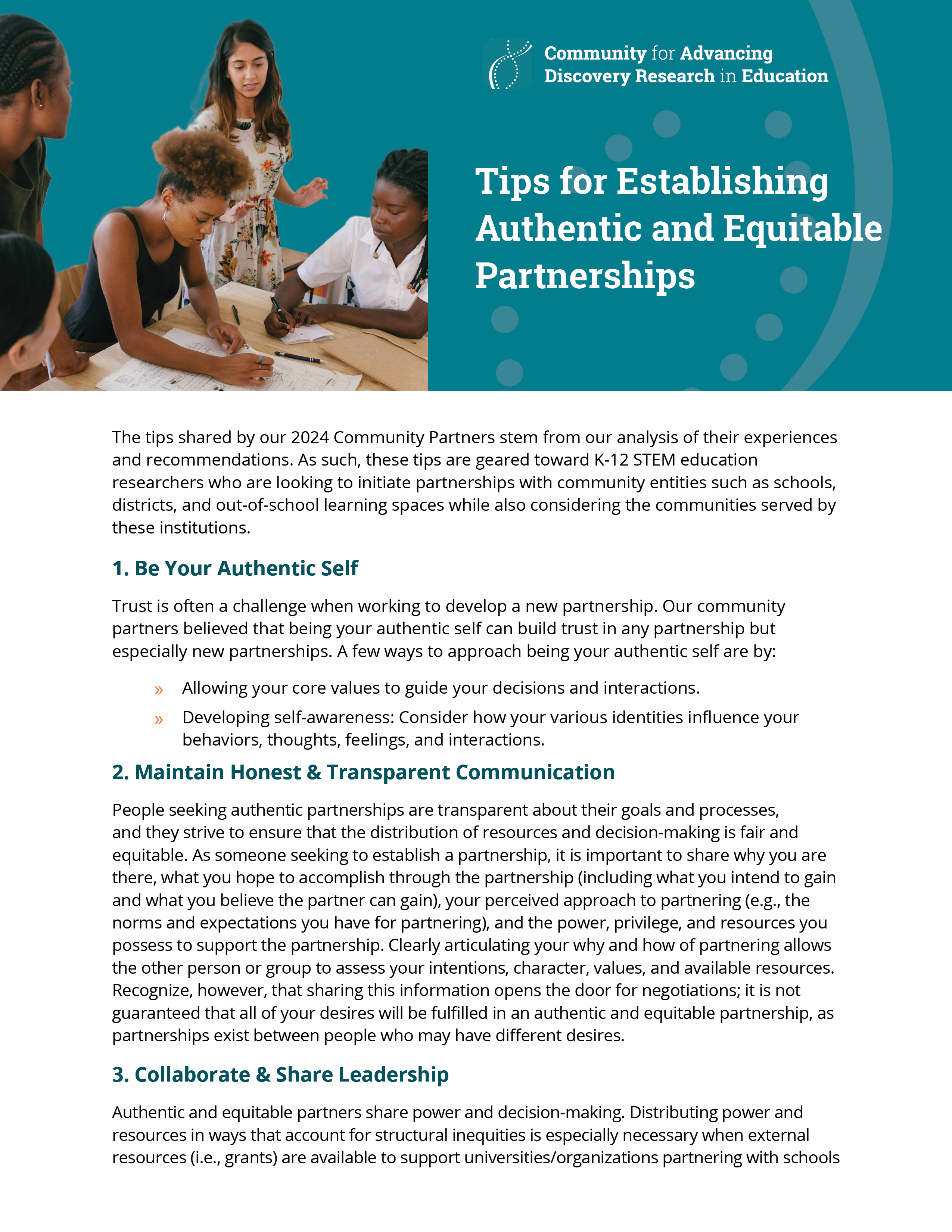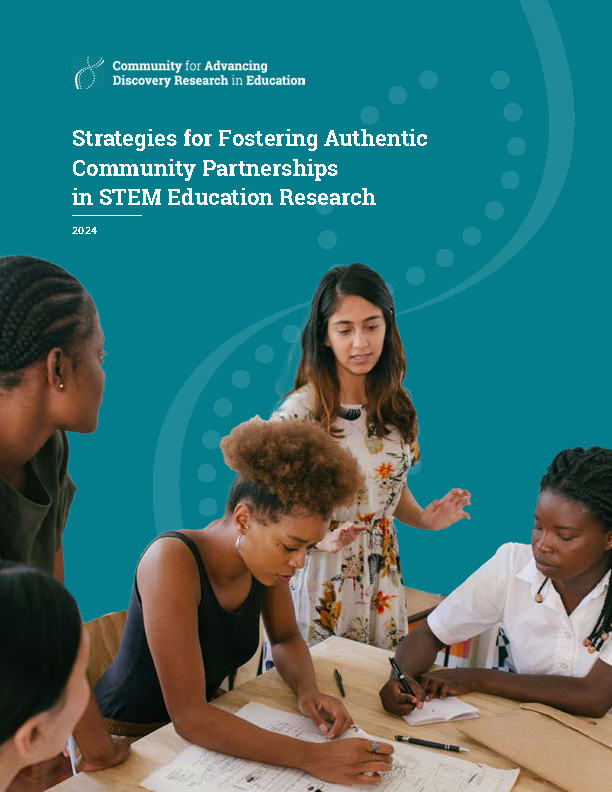Tips for Establishing Authentic and Equitable Partnerships
 This resource shares insights and actionable guidance from CADRE's 2024 Community Partners on how to foster authentic partnerships with schools, districts, and out-of-school learning organizations.
This resource shares insights and actionable guidance from CADRE's 2024 Community Partners on how to foster authentic partnerships with schools, districts, and out-of-school learning organizations.
This resource shares insights and actionable guidance from CADRE's 2024 Community Partners on how to foster authentic partnerships with schools, districts, and out-of-school learning organizations. Designed for K–12 STEM education researchers, the tips emphasize trust-building, shared leadership, responsiveness to community needs, and long-term commitment. These recommendations offer a roadmap for forming relationships that center community voices and values—ensuring that research efforts are collaborative, respectful, and impactful.
